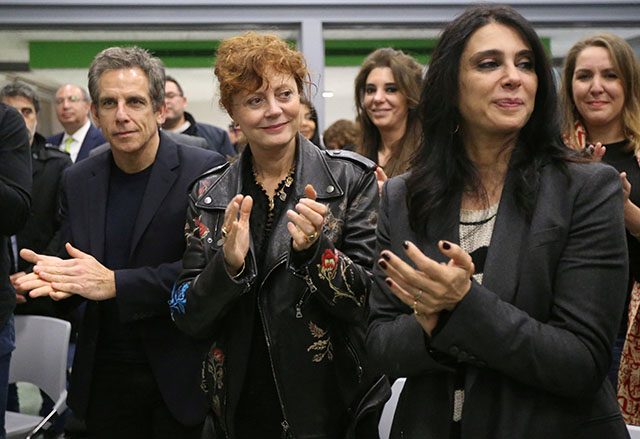
UNITED NATIONS — Most people wouldn’t consider the global refugee crisis a laughing matter, but American comic actor Ben Stiller says humor can help draw people’s attention to it.
Humor can help tell the stories of the more than 25 million refugees around the world, said the actor in an interview with the Thomson Reuters Foundation on Tuesday.
“I do think you can reach a lot more people that way,” said Stiller, who recently returned from a visit with Syrian refugees in his role as a goodwill ambassador for the United Nations’ refugee agency (UNHCR). He has held the role since last year.
“I don’t want to get people depressed. I want people to see that these are human beings,” he said. “Humor’s an important part of it.”
People might shut out the refugee issue because it is overwhelming but humor can capture their attention, Stiller said.
“I’m trying to find that,” he said. “It’s interesting to try to find humorous ways to tell the story.”
Stiller, 53, an actor, producer and director known for such films as “Zoolander,” “Meet the Fockers” and “There’s Something About Mary,” visited Syrian refugees in Lebanon.
Photographs and videos from his trip, posted on Twitter, show him visiting students in an art class and playing soccer with refugee children.
“The memories I take back from these trips are of laughing with the kids and families,” Stiller said. “We’re finding things in common and laughing about things that are funny, and humor is a part of life.”
Using humor to talk about refugees does pose a challenge, he added. “You don’t want to in any way make it seem trivial or make fun of it.”
But a little humor can help in grim situations like those facing refugees, he said.
“People I find have really wonderful resilient attitudes towards their experiences, and the ones who find the humor in it are able to find a way to survive.”
More than 5.6 million people have fled Syria since 2011, when civil war erupted, according to UNHCR. More than a million of them live in neighboring Lebanon, most in poverty.
Stiller, a New York native, said he would like to see Americans be less fearful and more welcoming of refugees, more supportive of countries hosting refugees and open to more resettlement in the United States.
He also has visited refugees in Jordan and in Guatemala with UNHCR.
“I walk away feeling it is important to get the word out about what these people are going through,” Stiller said. —Reporting by Ellen Wulfhorst, Editing by Jason Fields, Thomson Reuters Foundation









